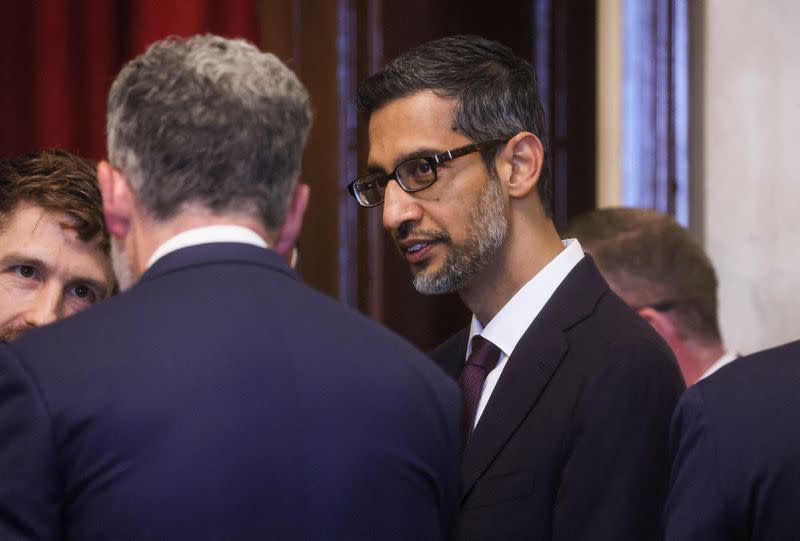Google CEO Sundar Pichai to testify Monday in US Google antitrust trial

WASHINGTON (Reuters) - Sundar Pichai, chief executive of Alphabet and its subsidiary Google, will testify on Monday in the once-in-a generation antitrust fight over Google's dominance of search and some parts of search advertising.
THE TAKE
Pichai, who is being called as a witness for Google, will likely be asked about the company's investments aimed at keeping its search competitive, especially as smartphones took over, and innovation in search advertising. The government, in cross examination, may ask why the company pays billions of dollars annually to ensure that Google search is the default in smartphones.
CONTEXT
* The government has argued that Google, which has some 90% of the search market, illegally paid an estimated $10 billion annually to smartphone makers like Apple and wireless carriers like AT&T and others to be the default in search on their devices in order to stay on top. The clout in search makes Google a heavy hitter in the lucrative advertising market, boosting its profits.
* Google has argued the revenue share agreements are legal and that it has invested to keep its search and advertising businesses competitive. It has also argued that if people are dissatisfied with defaults that they can, and do, switch to another search provider.
(Reporting by Diane Bartz; Editing by Chris Reese)

 Yahoo Finance
Yahoo Finance 